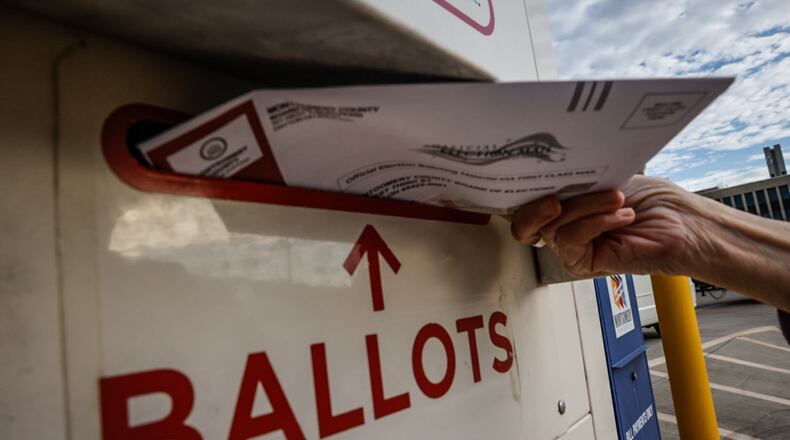Here are five things to know about our investigation of LaRose’s allegations and the impact his election law changes would have on boards of election and voters.
Questions about motives
LaRose faces questions about his motives in proposing new voting restrictions, issuing the new directive restricting access to ballot drop boxes and making allegations of more than 1,000 cases of alleged election fraud since 2019, mostly involving noncitizens and few of which resulted in prosecutions or convictions.
Voter fraud very rare
Voter fraud by citizens or noncitizens is exceedingly rare and critics say LaRose’s voter fraud allegations and proposed election law changes are part of an effort to suppress the vote, create a feeling of distrust in the election and disenfranchise people who are legitimate voters.
What he’s saying
LaRose said, “It’s absurd to claim that pursuing election integrity leads to distrust or disenfranchisement. Ohio has some of the most expansive voting access in the nation, but that doesn’t mean we don’t have rules to hold it accountable.”
Reaction to proposals
Local elections officials say LaRose’s ballot drop box directive and the voting law changes he’s proposed would pose major challenges for boards of election, could lead to more provisional ballots not being counted and would keep people from using the secure ballot drop boxes that are popular with voters.
Mistakes at BMV
Officials in three local counties say mistakes at the Ohio Bureau of Motor Vehicles have resulted in some noncitizens being registered to vote, prompting LaRose’s office to announce a “quality control check” on BMV registration practices and a BMV spokeswoman to say they have not seen evidence “that the BMV is asking noncitizens to register to vote.”
Follow @LynnHulseyDDN on Facebook, Instagram, TikTok and X.
About the Author

